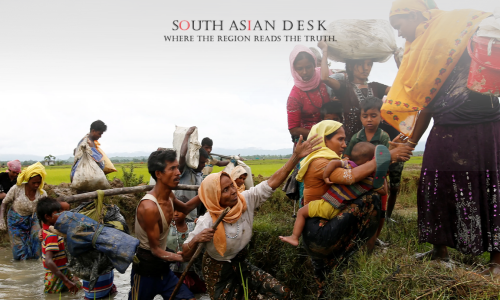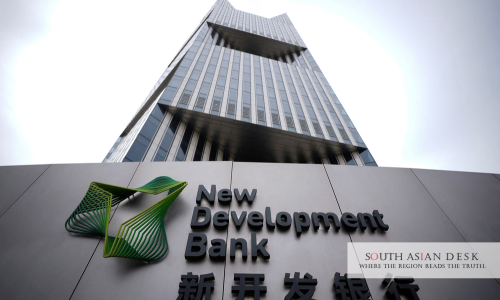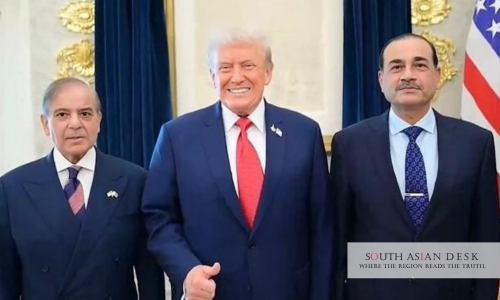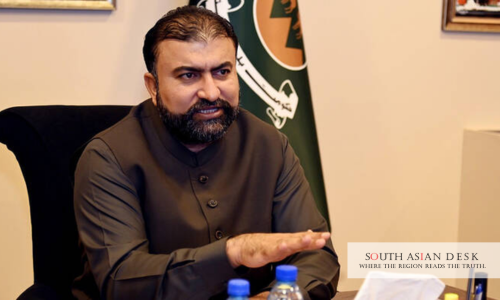Bangladesh calls for global responsibility to end the Rohingya ethnic cleansing in Myanmar. On Monday, August 25, 2025, Bangladesh’s interim leader Muhammad Yunus urged the international community to address the ongoing Rohingya ethnic cleansing in Myanmar, stressing a shared moral duty. Speaking in Cox’s Bazar, home to 1.3 million Rohingya refugees, he called for their safe return to Myanmar.
Why It Matters in South Asia
The Rohingya crisis significantly impacts South Asia, particularly Bangladesh, which hosts the world’s largest refugee camp, straining resources and infrastructure. The issue underscores the region’s role in addressing humanitarian crises, with implications for regional stability, security, and international cooperation amid Myanmar’s ongoing conflict.
Rohingya Ethnic Cleansing: A Persistent Crisis
The Rohingya, a Muslim minority, have faced decades of persecution in Myanmar, culminating in a 2017 military crackdown that forced over 700,000 to flee to Bangladesh. Labelled a “textbook example of ethnic cleansing” by the United Nations, the campaign involved killings, sexual violence, and village burnings. Yunus, addressing an aid conference in Cox’s Bazar, stated, “It is our moral responsibility to stop armed actors from carrying out their horrible design of ethnic cleansing of the entire Rohingya populace”.
Bangladesh now shelters 1.3 million Rohingya, with fresh arrivals reported in 2024 due to escalating violence in Myanmar’s Rakhine State. The UN’s Independent Investigative Mechanism for Myanmar noted ongoing atrocities, complicating repatriation efforts.
Global Responsibility and Challenges
Yunus emphasised that the burden of hosting refugees cannot fall solely on Bangladesh, which faces economic and environmental strain post the August 2024 uprising that ousted former Prime Minister Sheikh Hasina. “It is not only the responsibility of Bangladesh, but also of the international community, to share the burden of the Rohingya crisis,” he said. Shrinking aid flows, exacerbated by global funding cuts, including a US freeze on humanitarian aid, have worsened conditions in Cox’s Bazar, where 57% of families in Rakhine face food insecurity.
The UN High Commissioner for Refugees (UNHCR) echoed the call for renewed global commitment, highlighting the need for education and skills development for refugees. However, geopolitical hurdles, including China and Russia’s vetoes at the UN Security Council, have blocked resolutions condemning Myanmar’s actions.
Humanitarian and Regional Impact
The Cox’s Bazar camps, hosting over one million refugees, face overcrowding, poor sanitation, and disease risks, particularly during monsoons. The 2017 exodus saw 6,700 Rohingya, including 730 children under five, killed in a month, per Médecins Sans Frontières. Recent violence involving the Arakan Army and the Myanmar military has driven further displacement, with 150,000 new arrivals since early 2024.
Regionally, the crisis affects South Asia’s stability, with Bangladesh seeking support from nations like India and China. India’s cautious stance, driven by strategic projects in Rakhine, and China’s economic interests in Myanmar, have hindered progress.
Background
The Rohingya have faced systemic discrimination in Myanmar since the 1970s, with the 1982 Citizenship Law rendering them stateless. The 2017 crackdown followed attacks by the Arakan Rohingya Salvation Army (ARSA), prompting a disproportionate military response condemned as genocide by the UN and International Criminal Court. Despite international sanctions and an arms embargo by the EU, Myanmar’s military junta continues to evade accountability.
What’s Next
The Cox’s Bazar talks precede a UN conference on September 30, 2025, in New York, where Bangladesh will press for stronger global action. Ending the Rohingya ethnic cleansing requires coordinated international pressure on Myanmar to ensure safe, voluntary repatriation and accountability for atrocities.
Published in SouthAsianDesk, August 26th, 2025
Follow SouthAsianDesk on X, Instagram, and Facebook for insights on business and current affairs from across South Asia.






